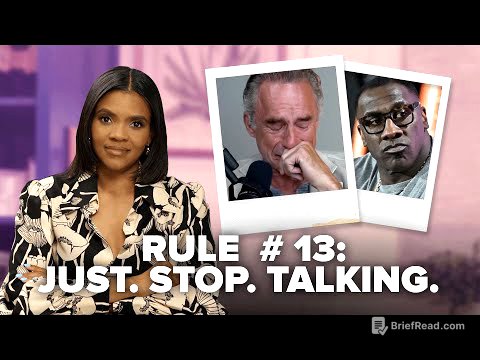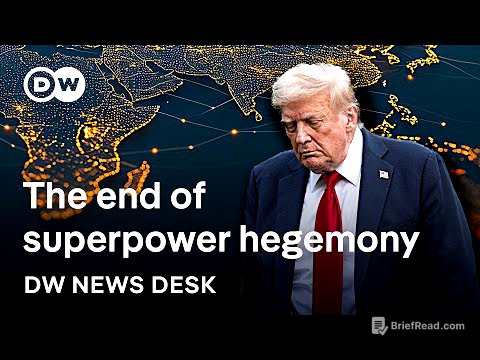TLDR;
This video explores the concept of freedom from the relentless pursuit of money and societal expectations. It challenges the notion that worth is measured by financial success, urging viewers to redefine their values, simplify their lives, and cultivate inner strengths to resist manipulation and live authentically. The video emphasizes that true wealth lies not in accumulation but in liberation from the fear of scarcity and the courage to live on one's own terms.
- Redefining success as liberation rather than accumulation.
- Understanding that society is built on the need and fear of money.
- Developing inner strengths: freedom from artificial desire, value independence, emotional self-reliance, and social courage.
The Dangerous Freedom of Not Chasing Money [0:03]
The video starts by describing a man who walks slowly and freely in a bustling city, unconcerned with the typical pursuits of wealth and status. This man is portrayed as "dangerous" because he doesn't conform to societal norms and doesn't measure his worth by conventional standards. His existence challenges the widely held belief that money is essential for freedom and success, prompting a reevaluation of what truly matters in life.
The System's Dependence on Your Need for Money [1:06]
The current societal structure is built upon the need for money and the fear of lacking it. Industries perpetuate the narrative that life is only valuable if it's profitable, pushing people to constantly hustle and seek more. This system teaches compliance over curiosity, training individuals to chase credentials and paychecks, ultimately leading to dependence on corporations. Contentment and self-sufficiency are seen as detrimental to business, and those who reject this model are often labeled negatively to maintain control.
Redefining Wealth and Success [3:31]
The video challenges conventional definitions of success and wealth, suggesting that true wealth lies not in material possessions but in needing less. Drawing on the wisdom of Eric Fromm and Henry David Thoreau, it emphasizes that freedom comes from detaching oneself from the fear of poverty and the need for external validation. Thoreau's experiment at Walden Pond exemplifies this, demonstrating that a simple life can lead to profound freedom and clarity.
The Mindset of Someone Not Controlled by Money [6:12]
People who aren't driven by money live to experience, feel, and create. Their joy comes from moments, conversations, and simple pleasures rather than purchases. They don't need to prove their worth through status symbols because they are secure in their identity. They reclaim the childlike ability to wonder and enjoy without the need for ownership or performance, making them resilient and powerful because their happiness doesn't depend on external factors.
Living with Less: Thoreau's Blueprint [7:51]
To break free from the grip of money and status, the video suggests following Thoreau's blueprint of living with less. Reducing one's needs increases freedom by freeing up time, energy, and mental space. This involves simplifying life, saying no to unnecessary commitments, and stripping life down to what truly matters. Minimalism isn't about owning nothing but about no longer being owned by possessions.
The Mode of Being vs. The Mode of Having: Fromm's Perspective [9:52]
Eric Fromm's concept of the "mode of being" versus the "mode of having" is introduced, highlighting that true fulfillment comes from being present, alive, and connected to oneself rather than accumulating possessions. Living in the mode of being fosters groundedness and peace, making individuals immune to manipulation and external pressures. The video encourages viewers to prioritize becoming over accumulating, measuring life by who they are rather than what they possess.
Money as a Tool, Not a Master [12:02]
Money is a tool that should be used, not served. The danger arises when money becomes the master, dictating choices and values. Many people sacrifice their time, health, and integrity for a paycheck, leading to quiet desperation. True freedom comes when one stops fearing the loss of money, allowing them to speak truthfully, live with integrity, and choose what's right over what's convenient.
Four Inner Strengths for a Life of Freedom [13:41]
Four key principles are identified as essential for a life of freedom:
- Freedom from artificial desire: Questioning the constant need for more and resisting the pressures of consumer culture.
- Value independence: Defining one's own code of success and happiness based on personal values rather than societal expectations.
- Emotional self-reliance: Finding peace and contentment within oneself, independent of external validation.
- Social courage: Walking one's own path, even when others don't understand, and letting go of the need for approval.
The Cost and Reward of Choosing Freedom [16:54]
Choosing not to chase money comes with the cost of being misunderstood and labeled by society. However, the rewards include gaining time, space, clarity, and the freedom to live with integrity. This path may lead to some relationships fading, but it ultimately allows one to live life on their own terms, with a quiet confidence that doesn't need external validation.
Disrupting the System by Stepping Out of the Money Chase [19:07]
Stepping out of the money chase disrupts the economic, political, and psychological systems that rely on endless consumption and fear. Economically, a content person doesn't fuel the cycle of buying and upgrading. Politically, they are harder to manipulate because they are not driven by fear. Psychologically, their peace can make others uncomfortable, but it also inspires those who are willing to question their own compromises.
Becoming the Free Person [21:21]
To become a free person, one must simplify their mind and home, viewing spending as a spiritual audit. It involves defining non-negotiable values, investing in one's being through learning and self-reflection, and intentionally reducing dependence on money. This is a daily practice of choosing purpose over price, leading to a more whole and awake existence.
The Power of the Man Who Doesn't Chase Money [23:47]
The man who doesn't chase money is powerful because he lives by his own compass, values time over titles, and can't be bribed or silenced by fear. He reclaims his soul from a marketplace that tried to sell it, remembering that freedom is meant to be lived honestly and simply. The world needs more people who are complete without consumption and who transcend the system, living with presence rather than productivity.
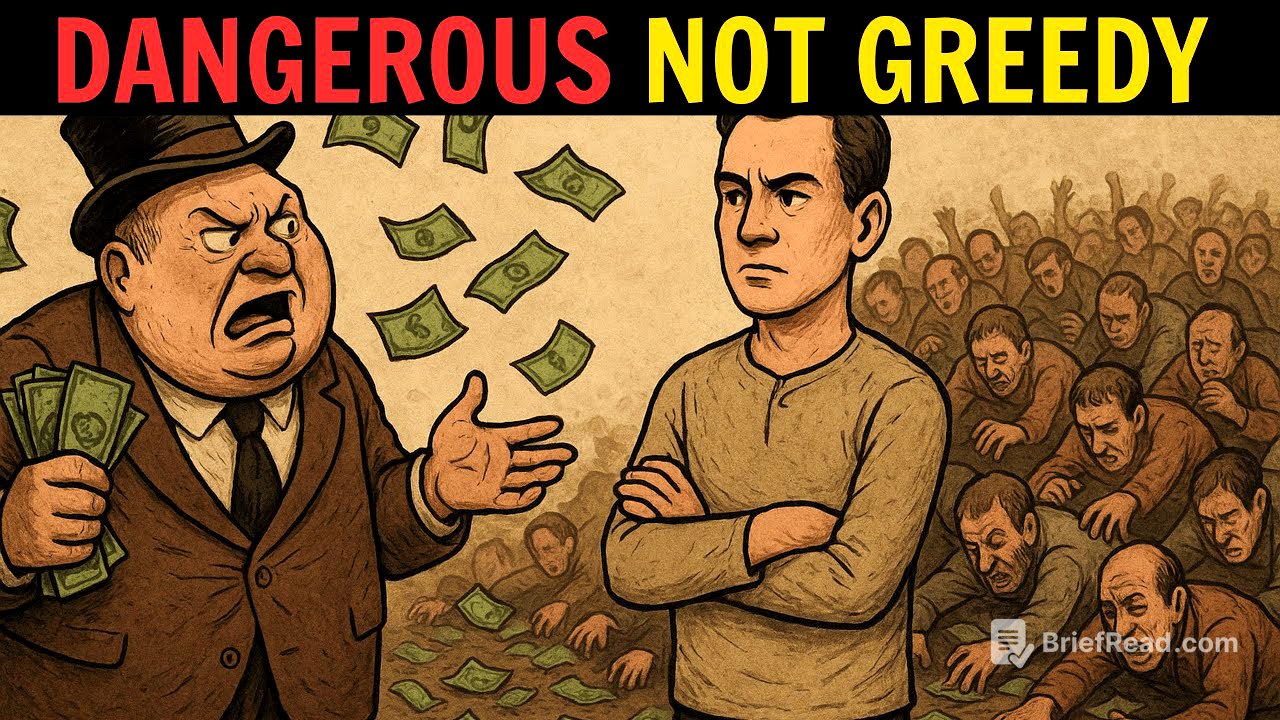
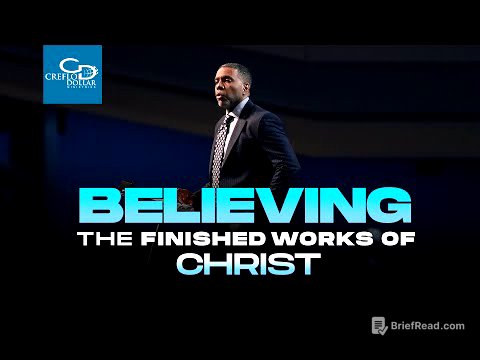
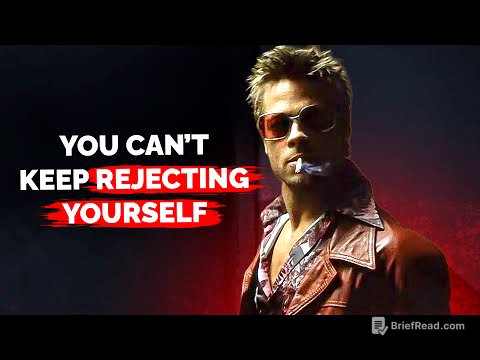
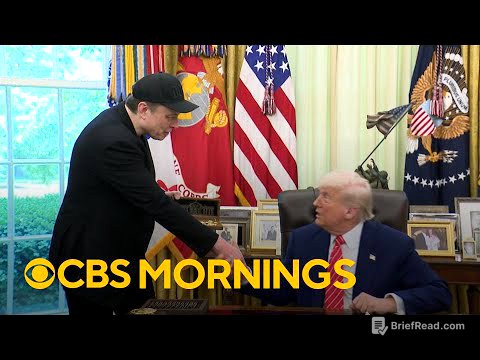
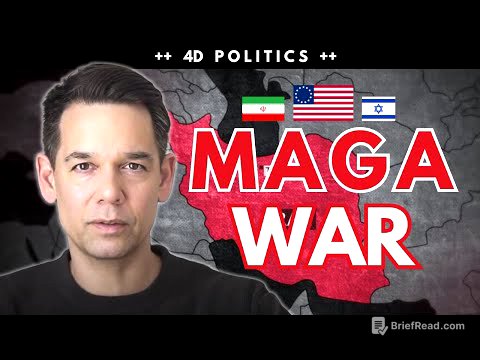

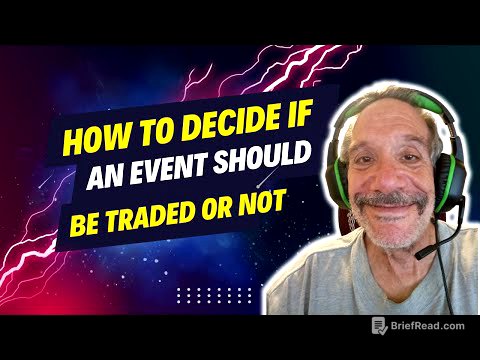
![Whether China can assure India that it will influence its ally, Pakistan, to be a stabilizer [中英字幕]](https://wm-img.halpindev.com/p-briefread_c-10_b-10/urlb/aHR0cDovL2ltZy55b3V0dWJlLmNvbS92aS9FMWZ2eVNKM3JfOC9ocWRlZmF1bHQuanBn.jpg)
